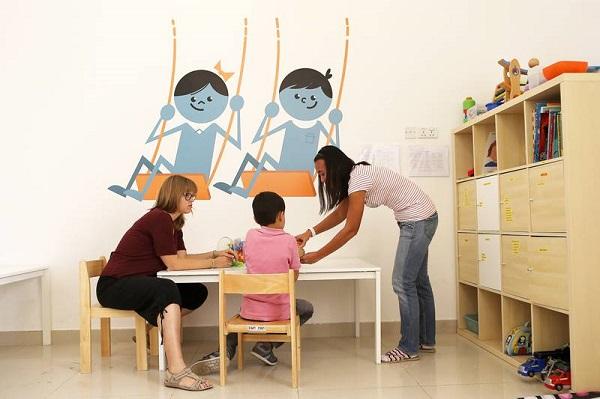Special needs pupils and their parents struggled throughout pandemic, study finds

Ministry of Community Development study looks at where extra support is needed for parents
The pandemic delivered a bolt-like shock to education systems across the world as schools were suddenly forced to switch from traditional classrooms to a world of online learning.
While most schools coped admirably, those offering distance learning to children with disabilities faced considerable challenges.
The UAE’s Ministry of Community Development carried out a wide-ranging study in May to help authorities evaluate and improve the quality of distance learning for children with disabilities.
“The study revealed they [teachers] struggled to correctly assess the educational outcomes due to a lack of direct observation”
Dr Rawhi Abdat, Ministry of Community Development
It found that teachers and parents of pupils struggled to cope with providing an engaging educational programme during the pandemic.
Chief among the suggestions, the study says that more motor skills activities should be added to the online learning schedule for children with disabilities.
“It identified six challenges that faced teachers, parents and pupils during the implementation of distance learning for pupils of determination,” said Dr Rawhi Abdat, researcher and psychologist at the Ministry of Community Development.
The study included a survey of 1,225 teachers who provide educational and rehabilitation services in public and private centres and schools across the country.
The survey’s findings showed that teachers faced difficulties attracting the attention of pupils, delivering information and maintaining discipline in classes.
“It also revealed they struggled to correctly assess the educational outcomes due to a lack of direct observation,” said Dr Abdat.
The study found that parents could not adequately deal with their children in the new educational environment, while some found themselves more occupied with their children who did not have disabilities.
Pupils showed poor attention and a lack of effective participation during lessons and in completing homework, researchers found.
Some showed no interest in learning and others found difficulty in accepting the new system.
The children also missed out on interacting with their peers and engaging in social activities.
Internet speed and availability of gadgets at home were also among the difficulties experienced during online learning for children with disabilities, the study revealed.
Positive outcomes
The research found, however, that online learning provided pupils with opportunities to self-educate and boosted energy levels because there was no commute to and from schools and centres.
The study said distance learning helped raise parents’ awareness about what is the educational process involves and boosted communication between parents and teachers.
Parents were also able to record lessons as the educational environment expanded outside of the classroom.
Recommendations
In addition to adding more motor skills activities to the online learning schedule, the study recommended that parents should receive training on the basics of distance education and its programmes.
Teachers should receive special training on the methods of disciplining a virtual classroom and diversifying educational tools that would meet the individual needs of pupils.
It also suggested that telecommunications operators should provide specialised technical support to families to help improve the home-learning experience.
Source: The National
